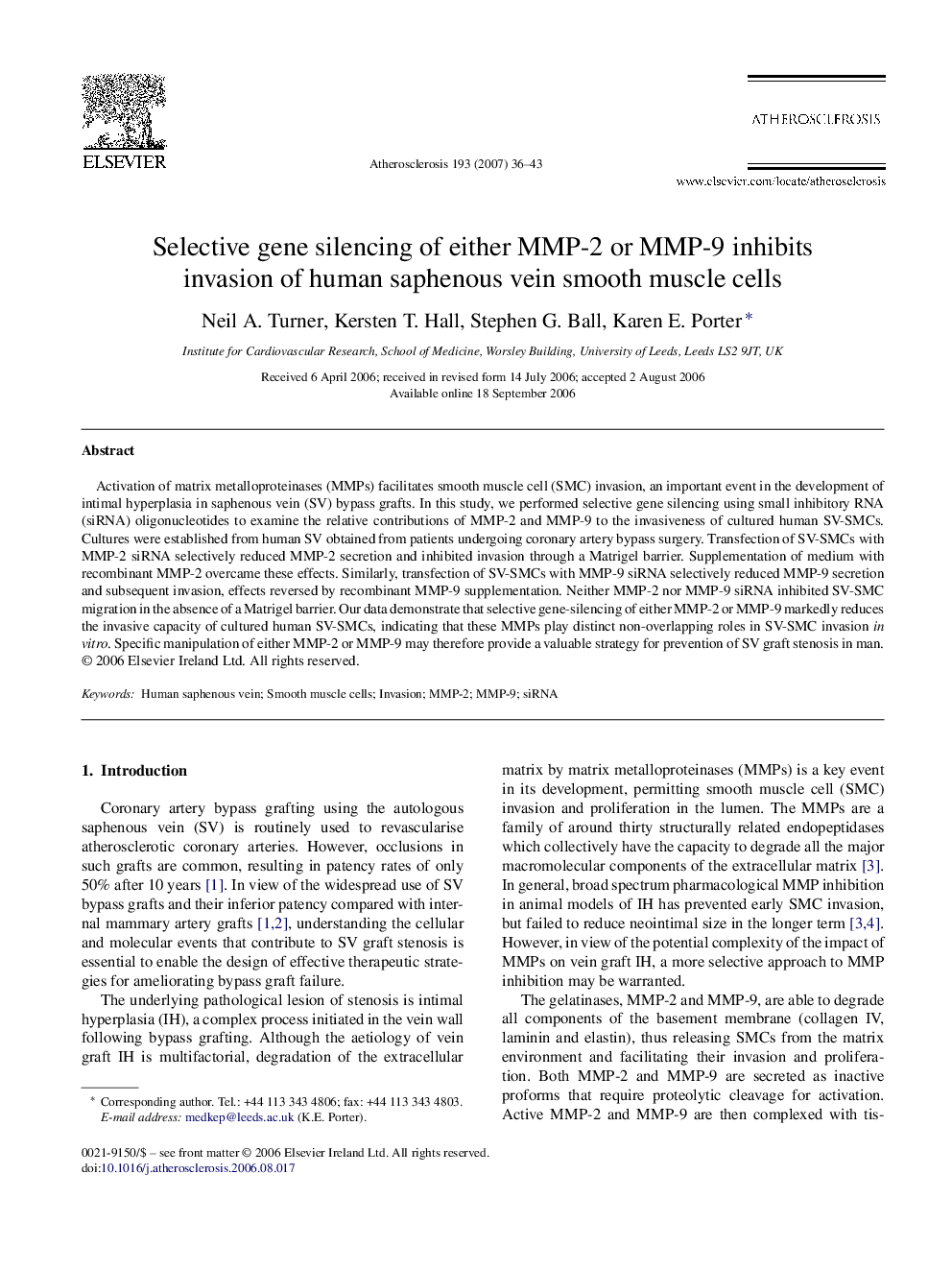| Article ID | Journal | Published Year | Pages | File Type |
|---|---|---|---|---|
| 2894687 | Atherosclerosis | 2007 | 8 Pages |
Activation of matrix metalloproteinases (MMPs) facilitates smooth muscle cell (SMC) invasion, an important event in the development of intimal hyperplasia in saphenous vein (SV) bypass grafts. In this study, we performed selective gene silencing using small inhibitory RNA (siRNA) oligonucleotides to examine the relative contributions of MMP-2 and MMP-9 to the invasiveness of cultured human SV-SMCs. Cultures were established from human SV obtained from patients undergoing coronary artery bypass surgery. Transfection of SV-SMCs with MMP-2 siRNA selectively reduced MMP-2 secretion and inhibited invasion through a Matrigel barrier. Supplementation of medium with recombinant MMP-2 overcame these effects. Similarly, transfection of SV-SMCs with MMP-9 siRNA selectively reduced MMP-9 secretion and subsequent invasion, effects reversed by recombinant MMP-9 supplementation. Neither MMP-2 nor MMP-9 siRNA inhibited SV-SMC migration in the absence of a Matrigel barrier. Our data demonstrate that selective gene-silencing of either MMP-2 or MMP-9 markedly reduces the invasive capacity of cultured human SV-SMCs, indicating that these MMPs play distinct non-overlapping roles in SV-SMC invasion in vitro. Specific manipulation of either MMP-2 or MMP-9 may therefore provide a valuable strategy for prevention of SV graft stenosis in man.
